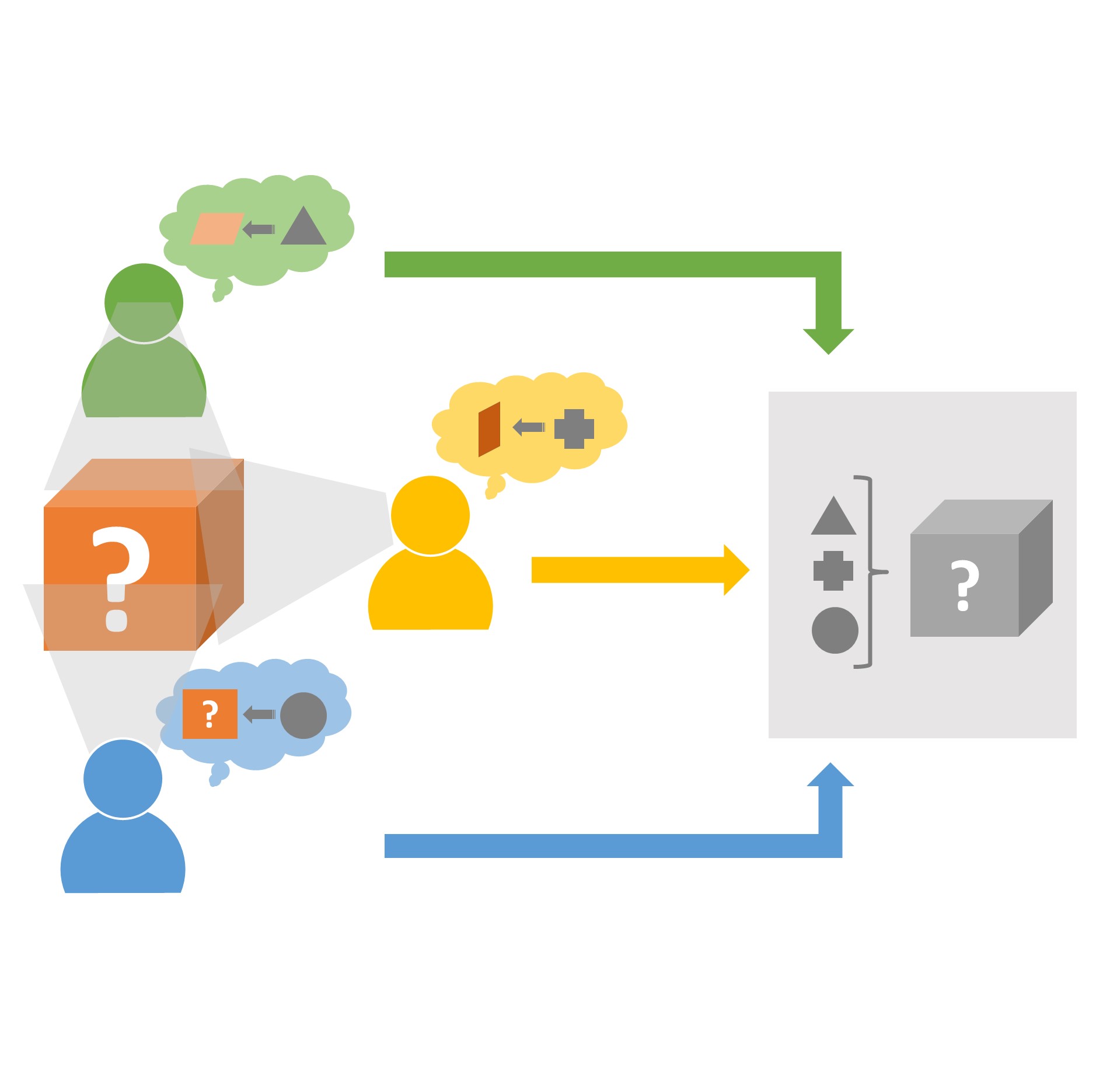
Tackling complex issues requires a diverse set of cognitive resources that frequently exceed the capabilities of individuals. Thus, complex problems are typically addressed in teamwork. However, a large body of psychological research has shown that groups are prone to psychological phenomena which impair group performance and decision-making. For instance, studies on group performance in brainstorming have shown that nominal (i.e. non-interacting) groups tend to outperform interactive groups (e.g. Mullen et al. 1991). There are various types of potential process losses, such as Production blocking (e.g. Diehl and Stroebe 1987), Social Loafing (e.g. Karau and Williams 1993), Social Inhibition (e.g. Bond and Titus 1983), Failure to solve Hidden Profiles (e.g. Stasser and Titus 1985) or the Common Knowledge Effect (e.g. Gigone and Hastie 1993).
Shaped by factors such as education and experience, team member tend to be committed to a particular mental model, i.e. a set of presuppositions and beliefs about the world, the context and the issue at hand.
Differences in mental models can foster creativity and mutual learning. For instance, a business specialist might get insights into technical feasibility after discussing with an engineer in the team. In another context, an engineer might come up with a new technical solution after brainstorming with a product manager.
However, different mental models might also impede effective teamwork. For instance, conflicting beliefs that are relevant to the project might be masked when words are semantically overloaded (as in the case of synonyms, homonyms etc.).
The goal of the C3PS research project is to investigate next-generation software-support for Morphological Analysis, a problem structuring method that promotes creativity and shared understanding in teams.
Morphological Analysis (MA) is a soft operational research technique. While hard operational research techniques are suited for well-structured problems and focus on quantiative modelling for problem solving (e.g. Linear Programming), MA is applied for problem structuring of ill-structured, "wicked problems". It has initially been proposed by Fritz Zwicky in the 1940s.
Due to its generic approach, MA can be applied for a wide range of complex issues such as:
The key idea of MA is the concept of divide & conquer (or: analyze and synthesize):
Analysis (Divide)
Synthesis (Conquer)

MA software has been developed to support the MA process. However, existing software tools only provide a single user interface and do not address issues that might arise in teamwork (see above).
Gamper, V.; Zec, M.; Langer, S.; Butz, A.: A Study on the Acceptance of Computer-Supported Morphological Analysis. In Proceedings of the 48th Hawaii International Conference on System Sciences (HICSS), Kauai, HI, 2016.
Zec, M.: Towards Software Support for Collaborative Morphological Analysis. In: Diefenbach, S., Henze, N. & Pielot, M. (Hrsg.^), Mensch & Computer 2015 - Tagungsband. Berlin, 2015
Zec, M; Schneider, A.W.; Matthes, F.: "Towards a Process Model for Collaborative Morphological Analysis." In Proceedings of the 21st Americas Conference on Information Systems (AMCIS), Puerto Rico, 2015.
Zec, M; Dürr, P.; Schneider, A.W.; Matthes, F.: "Improving Computer Support For Collaborative Business Model Design And Exploration." In Proceedings of the 4th International Symposium on Business Modeling and Software Design (BMSD), Luxembourg, 2014.